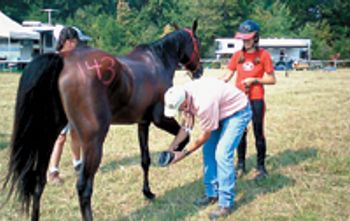
Lakewood, Colo. - Associate veterinarians are jumping jobs faster than the average American worker, according to a new study, and salaries that don't keep pace with inflation could be partly to blame.

Lakewood, Colo. - Associate veterinarians are jumping jobs faster than the average American worker, according to a new study, and salaries that don't keep pace with inflation could be partly to blame.

Here's how to help associates shine.

Ever feel like you're talking to a wall? Can't understand your boss's way of thinking? What is it with kids these days? Before you get frustrated, check out how the generations in today's workforce are different.

Managers: Take responsibility and ask your team to do the same.

Owners who seek to avoid conflict by meeting challenges head-on actually become part of the problem.

A hard-working solo veterinarian reaches 67 years of age and wants to sell his practice and retire after 25 years of building it up. It's a no-brainer - or is it?

No more drama.

What time frame is valid for a noncompete clause in an associate's contract? What distance from my practice do I use as a boundary?

Clueless about compensation ranges? Check out this chart.

Q. I've been at my first job for just over a year. I earn a base salary plus production and benefits. What percentage of my revenue is fair compensation?

I will be efficient. I will get along with my staff. I will read and study these mantras.

Surf the Web for valuable resources to help you do your job better.

Q. My practice is providing a therapy I don't agree with. I'm concerned about what clients will think. Will this hurt my reputation? Should I quit?

Dr. Robin Downing shares her secrets to being a successful female veterinarian. Hint: She considers herself a businessperson.

When I heard that one of my clients thought she could talk me out of anything, I knew I must have seen that pet owner during my first two years of practice.

Top five reasons for needing a breather from work.

This veterinarian will be testing for a black belt soon.

It's a jungle out there. With so many different species of practice owners running around, how are you supposed to know how to interact with them?

Everyone on a veterinary team wants to know where you're headed and how your team is doing. Answer those questions by giving your team a clear vision and identifying your first goals along the path.

He has practiced veterinary medicine 38 years, much of that time as a surgeon, but should someone at a party ask him what he does for a living, Dr. Derrel Elkins, DVM, MS, Dipl. ACVS, is about as likely to answer "sheep farmer" as "veterinarian."

The following tip is brought to you by a member of the Veterinary Leadership Group (VLG), a group of 20 management-savvy practitioners and hospital managers from across the country who meet twice a year to discuss business improvement, personal growth and social development issues for their practices.

Will the pressures of being a boss be balanced out by the joys of self-determination? Will you mind longer hours if you know you'll hold on to the financial rewards? These are the questions that can cause an eager associate to wake up late at night in a cold sweat.

A team member quit recently. She gave two weeks' notice but didn't fully complete it and was supposed to train someone to take over her job duties but didn't. After being a valued team member for so long, why did she choose to leave on a sour note?

Dr. H, a recent graduate, was attending the American Association of Equine Practitioners (AAEP) meeting in Orlando, Fla., this past December. While standing in the convention-center lobby waiting for a lecture to begin, he noticed three older veterinarians over in a nearby corner engaged in serious discussion. He recognized all three as leading lameness experts and well-respected practitioners.

The following breeds made the 2007 American Kennel Club's list of the Top 10 Most Popular Dogs in America.

The commission of errors is an unavoidable part of human existence. While errors might be as benign as misplacing car keys, their existence in the medical arena might be disastrous, causing injury or death.

I work at a walk-in clinic. Some clients ask for me, but if it's a 40-minute wait, they'll see another doctor. My boss wants to pay me a percentage of my production. Is this fair at a walk-in clinic?

Introducing new drugs or procedures into your practice can be frustrating if you're an associate-and it can be especially tough if you're a recent graduate. Here are a few tips I've learned through experience.

The practice owner at the hospital where I'm an associate won't invest in a new piece of equipment that I think we really need. How can I convince her to buy?